Venice High School’s Retiring Teachers for 2020
Ms. Zubiri marches in front of Venice High followed by student supporters in teachers’ strike January 2019.
June 10, 2020
Several Venice High School teachers’ long journey is coming to an end. Here’s their reflection of the changes that took place at Venice High School during the many years they spent here. The faculty members who are retiring are Mr. David Silberman, history teacher, Ms. Nancy Zubiri, English teacher and adviser of The Oarsman, Ms. Traci Thrasher, English teacher and drama director, and Mr. Pavlin Lange, Magnet Coordinator and former French teacher.
Mr. David Silberman
What remained consistent at Venice High School?
The most important things that have remained consistent and the same are: The very strong sense of community pride (Gondo Pride) among current as well as retired faculty, alumni, parents and student body, a very professional teaching, custodial and clerical staff, VHS with a very strong teachers union, VHS as a model of School Based Management, students who genuinely enjoy being on campus and many different types of athletic teams with many student participants.
What has changed at Venice High School?
When I began here, there was only the regular school and the Language magnet and now we have the World Language and Stemm magnets, as well as three different learning communities in ALPS, Media and Sports Medicine.
In the last few years, a number of new buildings are being added throughout the campus, including a new covered lunch area, a new field and stands. The auditorium has not been used for over five years, due to asbestos and roof issues.
The school schedule had six periods, with lunch after period five (only at VHS) so that athletes would miss fewer classes before competing in their sports.
How have students changed during your teaching career at Venice?
At VHS, there was always a natural integration of many different racial, ethnic and religious groups that for the most part have gotten along very well, with some intermittent fights and disagreements. This continues now. The largest changes are a much higher percentage of students that come from families with lower family incomes below the poverty level. The other is much more reliance on cell phones and electronic devices to communicate with each other and interface with the world. With that has been the trend to smaller attention spans to concentrate on academics.
How has teaching changed?
In 1995, teachers were treated with much more respect by the school District administrators.. There has been an erosion of faith in the classroom teacher to make key educational and curriculum decisions and more and more people at the District level without much teaching experience who make decisions about schedules, course content, testing and bell schedules, without even consulting with educators first!! This is the most disturbing thing of all to me.
Ms. Traci Thrasher
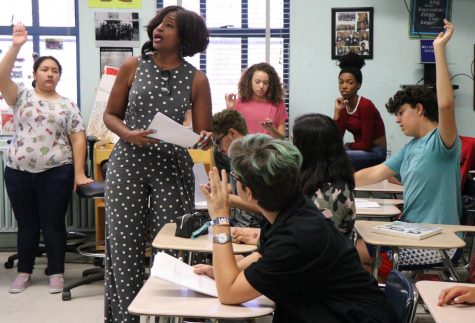
What do you admire about the students at Venice?
It has been my pleasure to be an educator and director of theatre at Venice High School for over 30 years. I fell in love with the students, the supportive administration, faculty, parents and staff. I found my family away from home. Venice High School students immediately impressed me as being some of the best in LAUSD. Every day was a joy and new adventure for me. I remember feeling fortunate to have an occupation that allowed me to be entertained by my students while fulfilling my passion for teaching.
The best compliment I ever received from a student came from my student assistant director for several VHS musical productions. He said, “I want to find a job like you have; one where you love it so much it’s not work, but a joy!”
What’s the highlight of your journey at Venice?
Teaching English, English learners, Theatre Arts and directing theatre has been a dream come true! Despite the difficult times I’ve had towards the end, I have been blessed to have worked with some extremely talented, kind, funny, loving and supportive students and colleagues. No one can ask for more than that!!
I love Venice High School! I always will! I am a better person because of my years at Venice and because of that, I wouldn’t change anything!
How does it feel to retire during this pandemic?
It’s unfortunate that my fellow retirees and I are ending our careers amidst this global pandemic and the ugliness of racism and white supremacy in this country. However, despite all of the senseless loss of life and unfair treatment that African- Americans have endured for centuries, I am heartened by the honest dialogue and worldwide attention to the grievous wrongs experienced by Black people. As a society, we must and will make the changes necessary to bring about necessary change. I have faith in the youth of America to pick up the mantle and facilitate lasting change.
Mr. Pavlin Lange
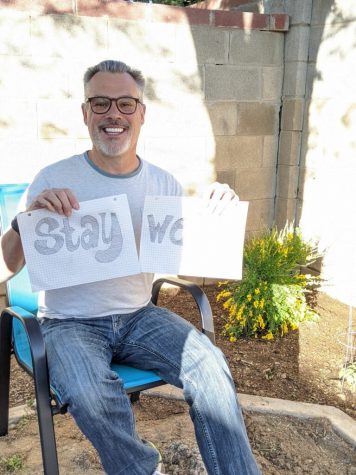
How have students changed over your teaching career at Venice?
I’ve been in Venice for 27 years. Young people are basically the same as they were when I was one myself and as with all the preceding generations, I’m sure. But, as attitudes about raising and educating children have changed and caused new rules and laws to be instituted to protect children, both physically and emotionally, young learners have adjusted their own attitudes and expectations.
There is definitely more of a feeling that no other student is intrinsically superior because of gender, race, economic status, and so on. As we’ve become aware that there are many different ways of learning that must be supported by as many modalities of teaching as we can put in place in classrooms, the stigma of being a student with special needs has lessened, I believe. At the same time, students have come to see themselves as being on an equal footing with their teachers on a human level.
The adult mystique is increasingly a thing of the past. I think social media has a lot to do with this. Young people have a wide variety of opportunities to witness adults behaving in all too human ways. (Also, when you’ve got Pennywise the Clown inhabiting the Oval Office, really what can one say in defense of the outmoded notion of the superiority of the white heterosexual male? Honestly.)
Young teachers seem to take students’ assumptions that they are on an equal footing with their educators with greater ease than their older colleagues, having been recently young learners themselves.
How has Venice changed since you began teaching?
I think the biggest change is the diminishing of the neighborhood school. When I began at Venice, the neighborhood was definitely working class. Now little vacation cottages on the canals built in the 1920’s are going for $1 million a piece. Working class families, some who’ve been Venice and Venice area residents for generations, have been forced out economically.
While the magnets continue to thrive, the new generation of wealthy local residents have exercised their charter school options to the detriment of the comprehensive high school. The past couple of years, however, there has been a reverse in this because of public school activism on the part of some very strong community leaders. Hopefully this continues.
Another big change is that there is much greater friction between the site administration and the unionized teaching staff. When I came to Venice in 1993, the School Based Management council was the ruling body of not only Venice High School but of most, if not all, of the schools in the District. This committee of students, teachers, parents, and administrators worked together more or less harmoniously to create the learning environment of the school, most importantly when it came to hiring teachers.
Then test scores proved that this model of governance didn’t benefit student learning, so the real power was taken from School Based Management and given back to administrators. Today SBM is more or less an advisory committee, but it is the principal who has the power to decide the important things. The principal continues to defer to SBM to keep the peace with his staff but the real power resides with him. (An important thing that was kept from SBM days was the hiring of teachers on the basis of committee even though the District appoints our administrators and, in some cases, teachers, too.)
Anything special that happened during your career that you would like to mention?
When I started out, there was a discipline policy called Zero Tolerance. It was kind of a tough love approach that called for very strict consequences to infractions such as drug use and sale, physical violence, vandalism, disobedience, so on. The idea was that it would more or less force repeat offenders to shape up and toe the line. Opportunity Transfers (OT’s, basically being kicked out of one school and sent to another) abounded as did suspensions and even expulsions. After several years of this, data revealed that Zero Tolerance didn’t reform young people so much as it pushed them out on the street where they got in trouble with the legal system.
So now, we have something called Restorative Justice, backed by a progressive discipline process of rigorous documentation. The idea behind Restorative Justice (RJ) is that the student is kept in school and offered more support (drug and nicotine counseling/groups; RJ circles; psychiatric social workers; additional support counselors, so on ). This makes sense. However, this more humane approach goes too far the other way, it seems to me; it lacks teeth. We’ve swung from too harsh and too arbitrary a discipline model to one that is too permissive. Site administrators, teachers, campus aides, and so on. are now basically and legally stripped of their power to institute real consequences for egregious infractions and the students know it and take advantage of it. Ultimately, again, the student is the victim here.
It is left up to the parents to decide what course to take and very often they choose to do nothing. This new generation of parents is very defensive in general about their children. They take any criticism of their offspring very personally and increasingly consider it the school’s responsibility, not their own, to not only educate but also to civilize their own children. The tacit agreement between these most important adults in the lives of young students, parents and educators, has been broken and, increasingly, the relationship between the parent (who now hdas very high expectations of the school) and the school staff (who generally has low regard for this new model parenting) has become adversarial.
How does it feel to retire during this pandemic?
It is very strange. The on-site portion of my job completely evaporated from one day to the next. There is still an important on-line component to accomplish and, without the daily distractions of the phone ringing, people coming into the office, being called to help with a situation somewhere on campus, supervision during lunch and nutrition, and so on ., this on-line part has become easier.
I now live in New Mexico. We were going to move here to our new house after my husband and I retired in June but we wondered, as we’re both working from home anyway, why not move early? That way, we don’t have to pay rent in West LA and a mortgage in Albuquerque through July! Working from 800 miles away is no more difficult than from 8 miles away. I’ve been back to LA once to finish up in my office and will be back again next week to try to set things up for the new magnet coordinator.
I do miss my colleagues and friends at VHS. I was going to miss them anyway, but that started earlier than I was anticipating.

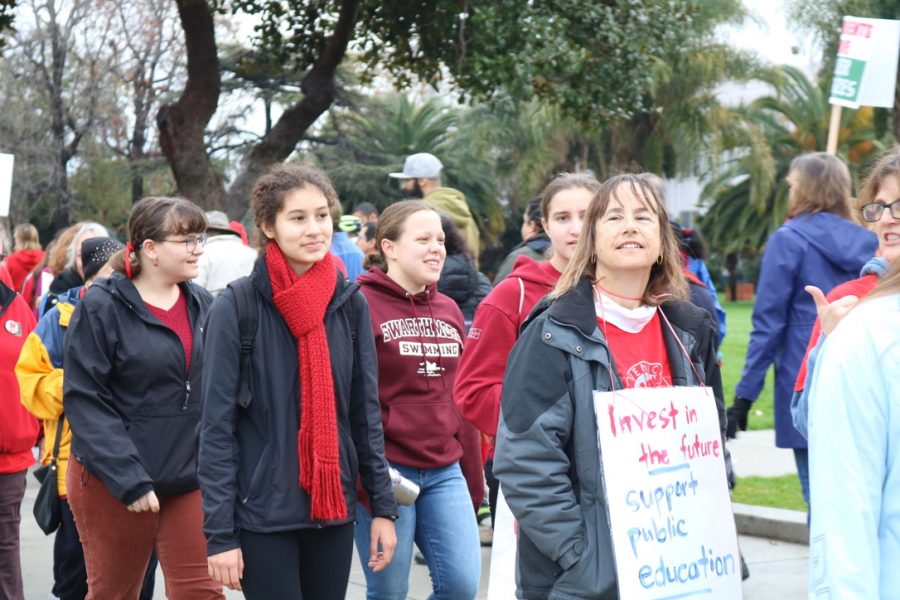

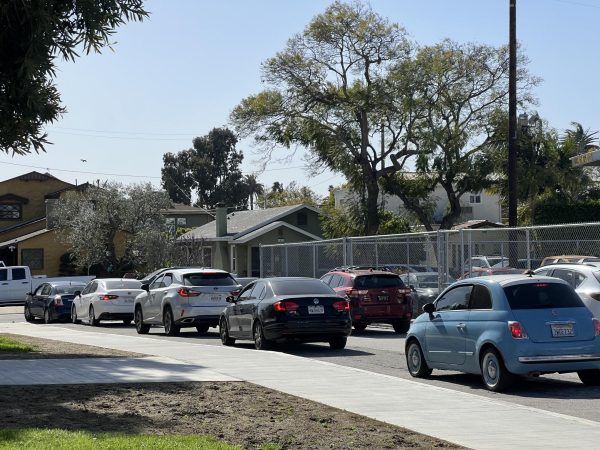
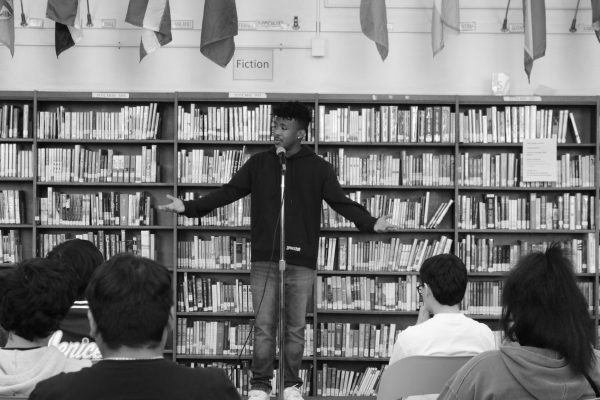
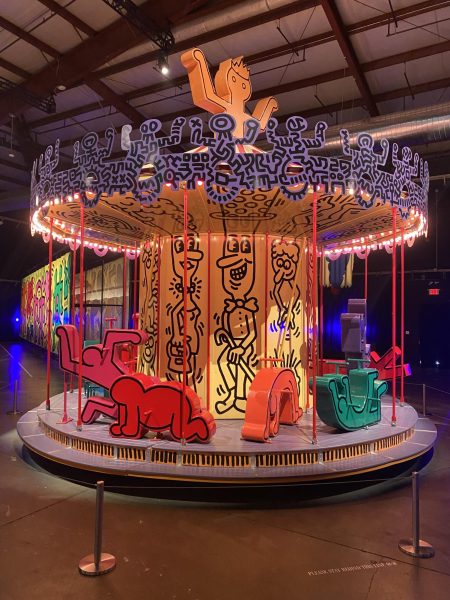
anthony amaro • Jun 19, 2020 at 8:29 PM
I’m alumni of Venice high school and I am at a loss for words about Ms. Thrasher is retiring because she helped me express myself through the arts because to me the arts are very important in so many ways and she also taught me about character both on stage and off-stage because developing both those times are very important in life no matter what plus she helped me realized my dream of becoming a actor after I’m done college because truthfully I have no ambition of doing anything else because acting is very liberating to some people including me thank you my old high school